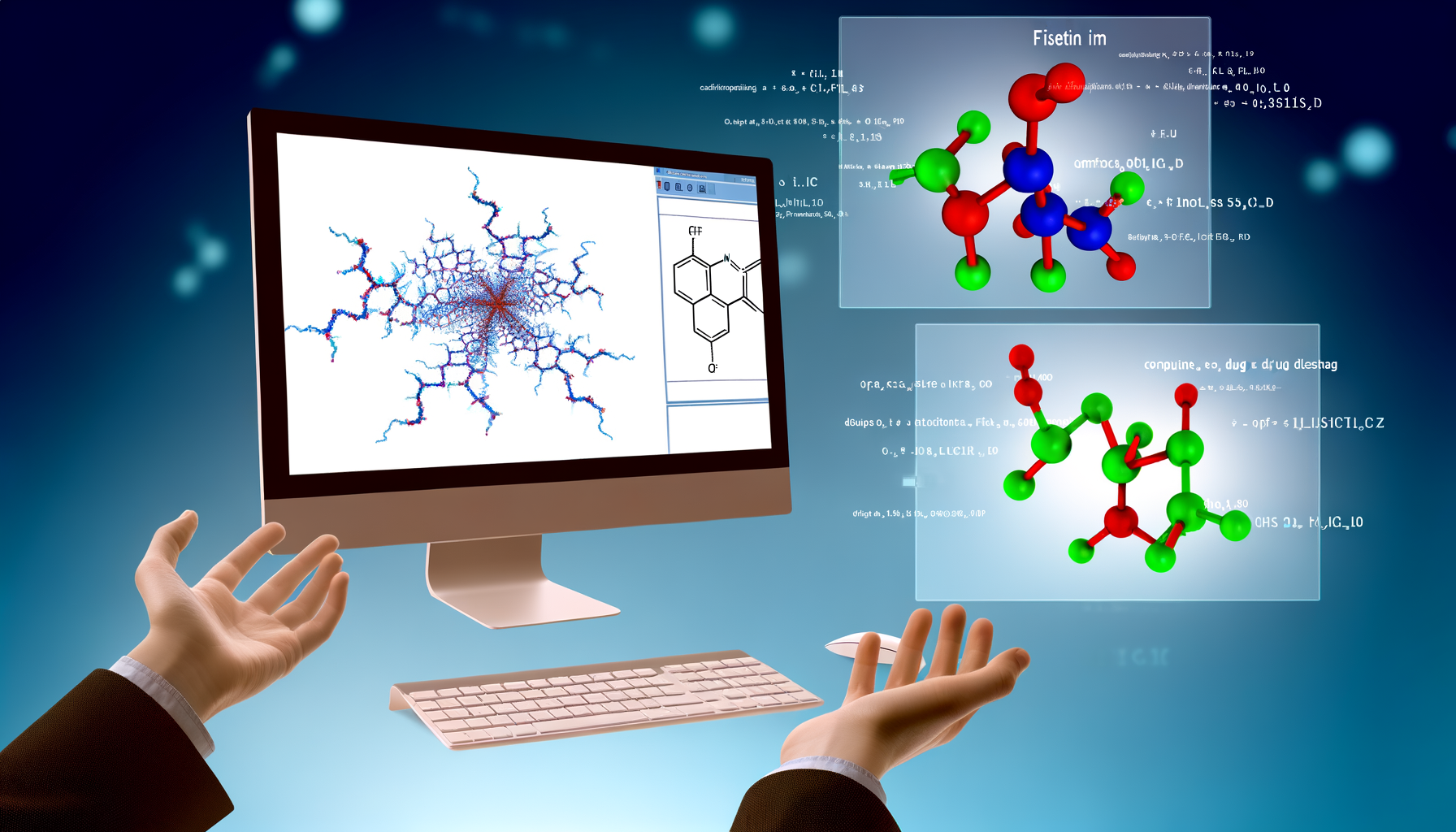Blog Post: Fisetin: A Promising Ally Against ALS via Computer-Based Drug Design
What is ALS and How Does it Relate to SOD1?
Imagine your body as a complex machine where proteins work like tiny robots performing essential tasks. When these protein robots malfunction, it can lead to severe mechanical failures or diseases. Amyotrophic Lateral Sclerosis (ALS) is one such disorder where specific protein robots misfire, causing devastating effects. One significant player in ALS is the protein, Superoxide Dismutase 1 (SOD1), which, due to mutations such as E100K, can misfold and aggregate, disrupting cellular pathways.
Unlocking Fisetin's Potential Against ALS
A recent study analyzed the effects of Fisetin, a natural flavonoid found in fruits and vegetables, on inhibiting the harmful aggregation of SOD1 E100K mutant proteins. Using advanced computer simulations like molecular docking and molecular dynamics (MD), researchers identified Fisetin's potential role as an inhibitor against the amyloidogenic activity (protein aggregation leading to amyloid plaques) of SOD1.
Research at a Glance
- Objective: Determine if Fisetin could prevent SOD1 E100K mutant aggregation, thus providing a potential therapeutic pathway for ALS.
- Methodology: The study employed molecular docking and simulation techniques, akin to testing how different keys fit into a lock, to evaluate how flavonoid compounds, such as Fisetin, interact with the SOD1 E100K protein.
- Findings: Fisetin emerged as a top contender by increasing structural stability and decreasing β-sheet formation, which are linked to protein aggregation, compared to other flavonoids like Puerarin and Peonidin.
Breaking Down Complex Terms
- Molecular Docking: Imagine it like playing a virtual game of 'lock and key' to find out which small molecules (keys) can fit precisely into a protein (lock) to inhibit its function.
- Molecular Dynamics (MD) Simulations: Think of it as creating a slow-motion video of how molecules (proteins) and potential inhibitors (like Fisetin) dance together over time, illustrating their interactions.
The Significance of This Research
Harnessing the power of natural compounds such as flavonoids can offer new avenues for therapeutic strategies against ALS. This approach emphasizes using dietary supplements containing effective compounds like Fisetin to possibly mitigate ALS progression. Such findings could leap from laboratories to our daily lives, potentially changing nutritional advice or supplement formulations.
Expert Opinion and Future Directions
Fisetin's identification as a promising therapeutic agent showcases the potential of computer-based drug design in discovering effective treatments for complex diseases like ALS. However, while these preliminary findings are compelling, they are primarily based on simulations. Future research should include laboratory experiments and clinical trials to evaluate Fisetin's effectiveness in living organisms. Exploring other natural compounds through a similar computer-based approach might also uncover additional ALS treatments.
Conclusion and Where We Go from Here
This study paves the way for incorporating functional foods into therapeutic strategies for neurodegenerative diseases. However, the journey from computer simulation to practical application is long and requires meticulous validation. Continued exploration in this domain holds hope for those affected by ALS, highlighting the importance of merging natural compounds with modern scientific techniques.
For more in-depth information, you can access the full research article here: NCBI Article.
References:
- NCBI, PubMed, "Inhibitory Effect of Fisetin Against the Aggregation Process of SOD1 E100K Mutant," (2025). DOI: 10.3389/fchem.2025.1569777.
